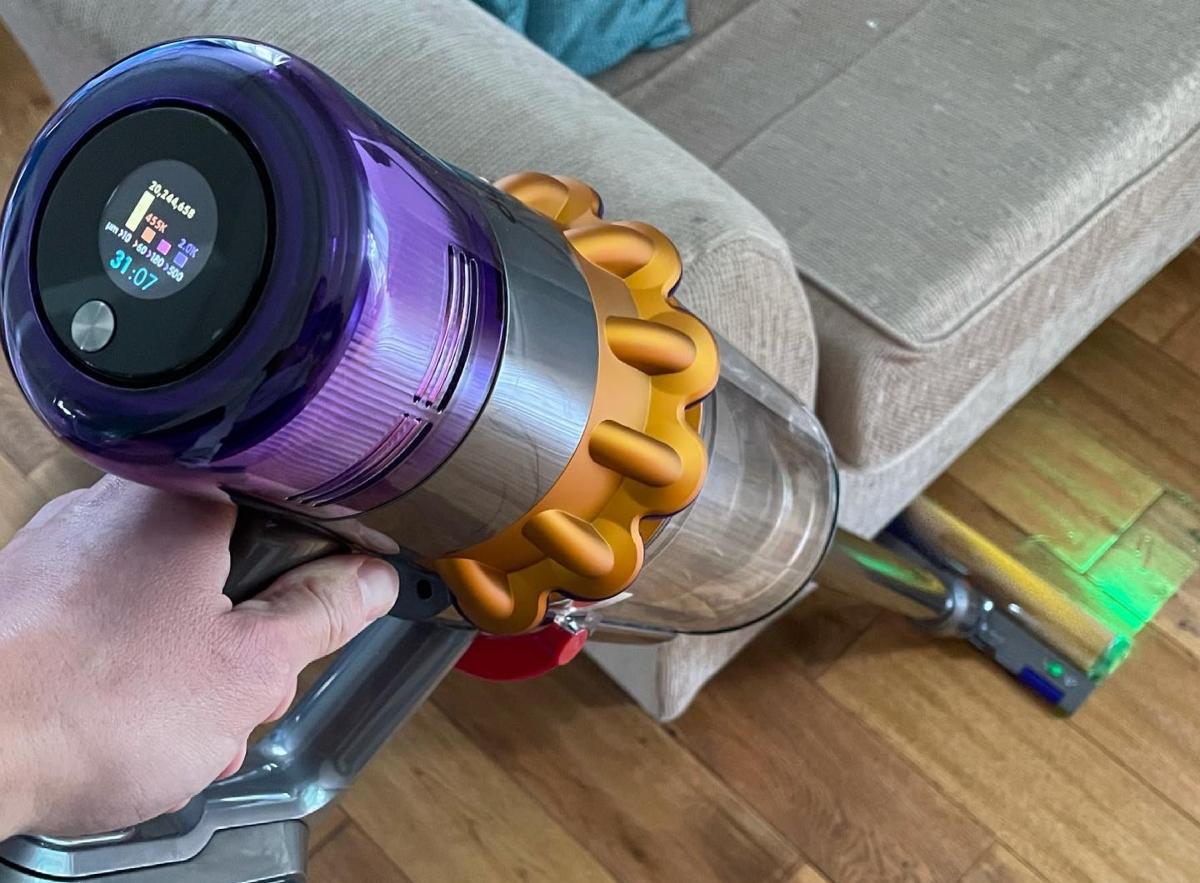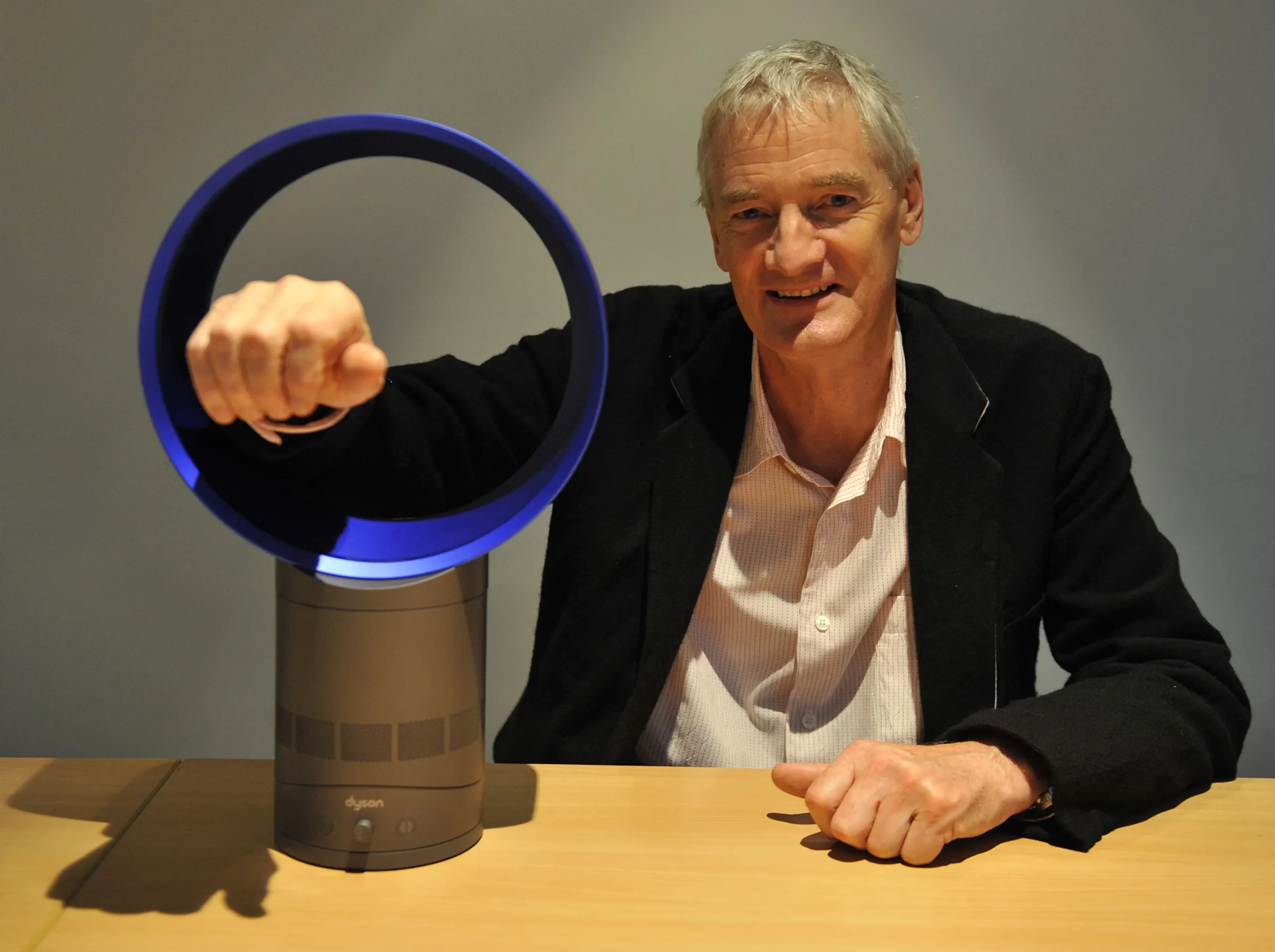Have you ever wondered about the financial standing of the person behind those innovative vacuum cleaners and sleek hand dryers? Many people, it seems, are quite curious about the financial state of successful innovators, and James Dyson is certainly one of them. Knowing about the net worth of James Dyson offers a glimpse into the scale of his achievements and the success of his global enterprise. It's a way, you know, to measure the tangible outcome of decades of dedication and invention.
His story, in a way, is pretty remarkable, showing how persistence can lead to truly significant wealth. It's not just about the numbers themselves, but what those numbers represent: a company that changed how we clean our homes and dry our hands, among other things. People often look at such figures, perhaps, to understand the scope of a business empire built on solving everyday problems.
This article will explore the various elements that contribute to the net worth of James Dyson, offering a clear picture of his financial journey. We will, in fact, look at his beginnings, the growth of his company, and the broader influence he has had. It's quite interesting, really, to see how an idea can turn into such a substantial fortune.
Table of Contents
- Biography of James Dyson: A Life of Innovation
- Personal Details and Bio Data
- The Dyson Story: From Idea to Empire
- Understanding Billionaire Wealth: How Net Worth is Measured
- What Contributes to the Net Worth of James Dyson?
- Factors Influencing Net Worth Fluctuations
- Frequently Asked Questions About James Dyson
- A Note on Other Information
- The Future and Beyond
Biography of James Dyson: A Life of Innovation
James Dyson, born in Norfolk, England, in 1947, showed an early interest in things that work and how they could work better. His path, it seems, wasn't a straight line to inventing household items. He studied furniture and interior design at the Royal College of Art, which is a bit different from what you might expect for someone who made a name in engineering. This background, however, arguably gave him a unique perspective on design and usability.
His early career saw him involved in several projects, not all of them immediately successful. For example, he worked on the Sea Truck, a high-speed landing craft, and later invented the Ballbarrow, a wheelbarrow with a ball instead of a wheel, which was quite a clever idea for stability. These early experiences, you know, taught him a lot about the challenges of bringing new products to life. They were, in a way, foundational steps.
The period before his vacuum cleaner breakthrough was marked by significant personal and financial struggle. He spent years, a very long time actually, trying to perfect his bagless vacuum cleaner. This dedication, despite many setbacks, really shows his strong belief in his ideas. It's a testament, perhaps, to his sheer will and refusal to give up.
Personal Details and Bio Data
Here is a quick look at some personal information about James Dyson, giving you a bit more context about the person behind the famous brand.
| Full Name | James Dyson |
| Born | May 2, 1947 |
| Birthplace | Cromer, Norfolk, England |
| Nationality | British |
| Education | Byam Shaw School of Art, Royal College of Art |
| Known For | Inventor, Industrial Designer, Founder of Dyson Ltd. |
| Spouse | Deirdre Hindmarsh |
| Children | Emily, Sam, Jake |
The Dyson Story: From Idea to Empire
The journey of Dyson as a company truly began with a frustration. James Dyson was, apparently, annoyed by how his vacuum cleaner lost suction as its bag filled with dust. This common problem, a very relatable one, sparked an idea. He thought there had to be a better way, a more efficient system. This initial thought, in some respects, was the seed for everything that followed.
The Bagless Revolution
His inspiration came from a sawmill, believe it or not, where a large industrial cyclone was used to separate sawdust from the air. He realized this principle, a rather simple one in essence, could be scaled down for home use. Over five years, and through more than 5,000 prototypes, he worked tirelessly in his garden shed. This period was incredibly challenging, financially and personally. He was, you know, very committed to this one goal.
The first bagless vacuum cleaner, the G-Force, was launched in Japan in 1986. It was quite expensive, but it gained recognition for its innovative design and effectiveness. Bringing it to the UK market was another hurdle, as existing manufacturers were, understandably, not keen on a product that would disrupt their lucrative bag sales. So, Dyson had to go it alone, a pretty brave move.
In 1993, he finally launched the Dyson DC01 in the UK. It quickly became the best-selling vacuum cleaner there, really changing the market. This success, in a way, proved that people were ready for a different approach to cleaning. It showed that, sometimes, a better idea just needs the right chance.
Expanding the Horizons
After the vacuum cleaner, Dyson didn't stop. The company, which is still privately owned, started to apply its engineering principles to other areas. The Airblade hand dryer, for instance, revolutionized public restrooms with its fast, hygienic drying method. Then came the bladeless fans, which were, in fact, quite a visual departure from traditional fans and offered a safer, quieter experience.
More recently, Dyson has moved into hair care with products like the Supersonic hairdryer and the Airwrap styler. These products, typically, command a premium price but are known for their advanced technology and design. This expansion shows a consistent theme: taking everyday items and trying to make them significantly better through clever engineering. It's almost like a signature approach, you know.
There was also a significant investment in electric vehicle development, though that project was eventually cancelled. This particular venture, arguably, shows Dyson's willingness to take big risks and explore new frontiers, even if they don't always pan out. It's a reminder that innovation often involves trying many things.
Global Reach and Manufacturing
Dyson is now a truly global company, with products sold in over 65 countries. Its manufacturing operations have shifted over the years, with a notable move of its headquarters and some manufacturing to Singapore. This move, in some respects, was a strategic decision for future growth and proximity to key Asian markets. It's a pretty big operation, encompassing research, design, and production facilities around the world.
Understanding Billionaire Wealth: How Net Worth is Measured
When we talk about the net worth of a person like James Dyson, we are, basically, looking at a calculation. It's not just the money in their bank account. Net worth is the total value of all their assets minus their liabilities. Assets can include things like company ownership, investments, real estate, and even valuable personal possessions. Liabilities are debts, like loans or mortgages.
For someone who owns a private company, like James Dyson does with Dyson Ltd., a very large part of their net worth comes from the estimated value of that company. This value is, typically, assessed based on its revenues, profits, market position, and future growth prospects. It's a complex process, involving financial analysts and, sometimes, comparisons to publicly traded companies in similar sectors. So, it's not a simple cash count, you know.
This figure, the net worth, can change quite a bit. Market conditions, company performance, new investments, or even significant charitable donations can all cause it to go up or down. It's a snapshot in time, really, and not a fixed number.
What Contributes to the Net Worth of James Dyson?
The net worth of James Dyson is, fundamentally, built on several pillars. His primary source of wealth is, of course, the company he founded and still largely controls. But there are other elements that add to his considerable fortune.
Company Ownership
The vast majority of James Dyson's wealth comes from his ownership of Dyson Ltd. Since it's a private company, he retains a very significant stake, if not complete ownership. The success and global reach of Dyson products, from vacuums to hair stylers, translate directly into the company's high valuation. This valuation, in turn, forms the largest component of his personal net worth. It's, pretty much, the core of his financial standing.
The company's consistent innovation and strong brand presence allow it to maintain a premium position in the market. This ability to innovate and capture market share directly contributes to the perceived value of the business. And that, in a way, is what makes his personal wealth so substantial.
Investments and Real Estate
Beyond the company, individuals with such significant wealth often diversify their assets. James Dyson, for instance, owns substantial landholdings in the UK. He is, in fact, one of the largest private landowners in the country. These land assets, which include agricultural land and other properties, represent a considerable part of his overall wealth. They are, you know, a different kind of investment.
It's also common for wealthy individuals to have a portfolio of other investments, which could include stocks, bonds, or stakes in other businesses. While specific details of his personal investment portfolio are not publicly disclosed, it's reasonable to assume a degree of diversification outside of his primary business. This helps to secure and, arguably, grow his wealth over time.
Philanthropic Efforts and Education
James Dyson is also known for his philanthropic activities, particularly through the James Dyson Foundation. This foundation supports design and engineering education, encouraging the next generation of innovators. This commitment to education and fostering new talent is, in fact, a significant part of his public persona and how he uses his wealth. It's a way, perhaps, of giving back to the field that brought him success.
The foundation's work includes supporting university programs, providing grants, and running the James Dyson Award, an international design award. These initiatives, while not directly adding to his net worth, reflect his broader impact and how his wealth is, in some respects, channeled into meaningful causes. It's pretty inspiring, actually, to see that kind of dedication.
Factors Influencing Net Worth Fluctuations
The net worth of any billionaire, including James Dyson, is not a static figure. It changes, sometimes quite significantly, based on a variety of factors. The performance of Dyson Ltd. is, obviously, the biggest driver. If the company introduces a new hit product, or expands into new markets successfully, its valuation can go up. Conversely, if sales dip or a product fails, the valuation might decrease.
Economic conditions also play a big role. A strong global economy might mean more consumer spending on premium products, which benefits Dyson. A downturn, on the other hand, could reduce demand. Currency exchange rates can also affect the reported net worth, especially for someone with global assets and operations. So, it's a very dynamic number, really.
Changes in asset values, like real estate prices, can also impact his overall wealth. If the value of his extensive landholdings increases, so too does his net worth. Similarly, any major investments or divestments he makes could cause shifts. It's, almost, a constant recalibration.
Frequently Asked Questions About James Dyson
What is James Dyson most famous for?
James Dyson is, arguably, most famous for inventing the bagless vacuum cleaner. This innovation, which uses cyclonic separation to avoid losing suction, truly changed the way people clean their homes. He is also very well known for founding Dyson Ltd., the company that produces a wide range of innovative household appliances, including hand dryers, fans, and hair care products. It's, pretty much, his signature achievement.
How did James Dyson become so rich?
James Dyson became very rich primarily through the success of his company, Dyson Ltd. He spent many years, a very long time in fact, developing his bagless vacuum cleaner. After finally launching it, the product became a huge success globally. Because he retained almost complete ownership of his company, its immense value directly translated into his personal net worth. His wealth, basically, stems from his inventions and the global business he built around them.
Is Dyson a privately owned company?
Yes, Dyson Ltd. is a privately owned company. This means its shares are not traded on a stock exchange. James Dyson and his family maintain ownership of the company. This private ownership structure is a key reason why his personal net worth is so closely tied to the company's valuation, as he hasn't sold off significant portions of the business through public offerings. It's, actually, quite rare for a company of its size to remain private.
A Note on Other Information
As part of the information provided for this article, there was a text snippet given. This snippet, which you can see below, is about updates to the .NET framework and Windows operating systems. It describes various security and cumulative reliability improvements for .NET Framework versions 3.5, 4.8, and 4.8.1, with specific dates like June 10, 2025, April 22, 2025, March 27, 2025, and March 25, 2025. It also mentions a user's confusion about these updates and a search for a simple explanation.
"My text: `Net 8.0 has been refreshed with the latest update as of june 10, 2025,See the release notes for details on updated.,The april 22, 2025 update for windows 11, version 22h2 and windows 11, version 23h2 includes security and cumulative reliability improvements in.net framework 3.5 and 4.8.1.,The march 27, 2025 update for windows 11, version 24h2 includes security and cumulative reliability improvements in.net framework 3.5 and 4.8.1,Summary this article describes the security and cumulative update for 3.5, 4.8 and 4.8.1 for windows 10 version 22h2,Security improvements there are no new security.,I'm kind of new to the.net area,There is big confusion about all these which i really couldn't figure out,I searched a lot, but i couldn't find any simple and straightforward explanation.,The march 25, 2025 update for windows 11, version 22h2 and windows 11, version 23h2 includes security and cumulative reliability improvements in.net framework 3.5 and 4.8.1.,The april 25, 2025 update for windows 11, version 24h2 includes security and cumulative reliability improvements in.net framework 3.5 and 4.8.1,Is there an open source library that will help me with reading/parsing pdf documents in.net/c#?,Describes the.net framework 4.6.2 web installer for windows 7 sp1, windows 8.1, windows 10 (version 1507), windows 10 november update (version 1511), windows 10 anniversary update.,See the release notes for details on.,The april 22, 2025 update for windows 11, version 22h2 and windows 11, version 23h2 includes security and cumulative reliability improvements in.net framework 3.5 and.,I searched a lot, but i couldn't find any simple and straightforward.,The march 25, 2025 update for windows 11, version 22h2 and windows 11, version 23h2 includes security and cumulative reliability improvements in.net framework 3.5 and.`"
This information, it's pretty clear, is not related to the net worth of James Dyson or his business activities. It is included here simply because it was part of the provided source material for this article. It's, basically, a separate piece of data.
The Future and Beyond
The story of James Dyson and his company continues to unfold. His net worth, as we've discussed, is a reflection of the enduring success and innovation of Dyson Ltd. As of late 2024, his financial standing remains significant, placing him among the wealthiest individuals globally. The company, in some respects, is always looking for the next problem to solve, the next product to improve.
His influence extends beyond just products; he is a vocal advocate for engineering and design education, constantly pushing for greater investment in these fields. This focus on future generations of innovators is, actually, a very important part of his legacy. It's a way, you know, of ensuring that the spirit of invention keeps going.
To understand more about the wider world of business leaders and their financial journeys, you can learn more about our main page. For further insights into the lives of people who create and build, you might also find interesting information on more about innovators. You can also explore more about the Dyson company's official activities and initiatives on their newsroom.



Detail Author:
- Name : Noemi Turcotte I
- Username : weston.batz
- Email : lelia.farrell@mayer.com
- Birthdate : 1993-02-12
- Address : 5006 Montana Burgs Rogahnbury, TX 58684-5993
- Phone : +13859050135
- Company : Raynor-Sauer
- Job : Financial Examiner
- Bio : Et modi voluptatem architecto. Dignissimos eum in est molestiae incidunt autem porro. Debitis molestiae reprehenderit iste voluptatem.
Socials
linkedin:
- url : https://linkedin.com/in/breitenberg2019
- username : breitenberg2019
- bio : Sit sed quas consequatur.
- followers : 571
- following : 1930
tiktok:
- url : https://tiktok.com/@breitenberg1988
- username : breitenberg1988
- bio : Et nemo voluptatem omnis corrupti quia.
- followers : 6590
- following : 1814
facebook:
- url : https://facebook.com/breitenberg2000
- username : breitenberg2000
- bio : Rerum ipsa autem distinctio dolores mollitia.
- followers : 5480
- following : 2478
twitter:
- url : https://twitter.com/johnathan.breitenberg
- username : johnathan.breitenberg
- bio : Ut illum qui quas. Aut aspernatur aspernatur repudiandae et animi.
- followers : 5472
- following : 176
instagram:
- url : https://instagram.com/breitenbergj
- username : breitenbergj
- bio : Labore qui non autem numquam. Ut minus tempore nihil iure beatae facilis.
- followers : 5341
- following : 505